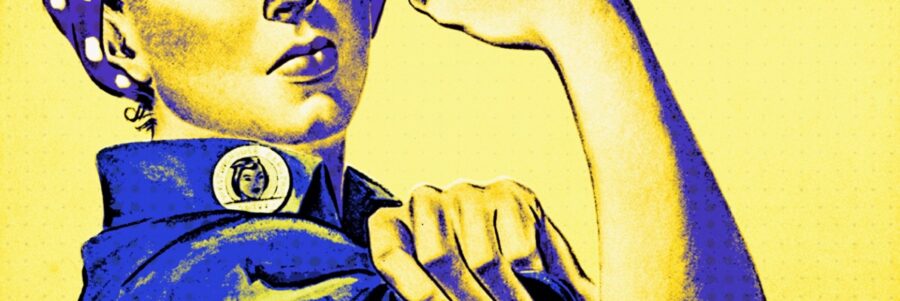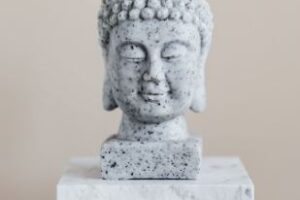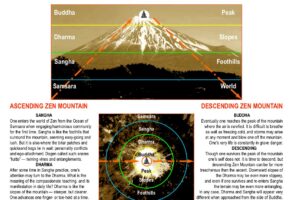
We Americans tend to associate the idea of independence with that of freedom. Freedom from taxation without representation; freedom to enjoy life, liberty, and the pursuit of happiness; and to practice religion — or not — as we deem fit. These are freedoms, or rights, that we tend to take for granted, and yet some other earnest Americans are always chipping away at them, or attempting to impose their version on the rest of us. Freedom is apparently dependent on vigilance — trust, but verify.
If independence is the opposite of dependence, then we would be well advised to examine those relationships and material components in our life upon which we tend to depend, with an eye toward eliminating those that are not furthering our higher aspirations. We are legitimately dependent upon our job for livelihood, but also upon our family, friends and colleagues for their support, or at least for refraining from erecting barriers to our efforts.
Which raises the question, is there any relationship that is not inherently delusive?
zenkai taiun michael elliston, roshi
We have ambivalence toward, and evolving relationships to, our independence from, or dependence upon, government, justice, religion and science, to name a few institutional systems modern society has come to depend upon to differing degrees. We can also examine our dependence upon Zen in this context. Are we dependent upon zazen itself?
In Fukanzazengi, Master Dogen instructs us to set aside all “delusive relationships.” Which raises the question, is there any relationship that is not inherently delusive? These instructions are for zazen, and so are meant to apply when we are on the cushion. As soon as we leave the cushion, all bets are off, as we are all aware. Some effects of zazen go with us into our daily life activities, but this does not detract from the special effects of zazen on the cushion.
Relationships are subject to many attributes, but the chief characteristic of any of our relationships might be said to be its impermanence, according to basic Buddhism. This is not to quibble with the mitigating aspect of the principle of rebirth, that relationships are karmically entangled, and so neither begin nor end in one lifetime. Let’s not go there. But simply to say that any relationship we have with another person, be it wonderful or awful, is either made more poignant, or more bearable, respectively, by virtue of being reliably transient.
In Zen, there is one fundamental relationship that has to be resolved. After which, all other relationships fall into their proper place. It relates to the Precept of knowing self and other as one, which may be interpreted as the deeper meaning of Master Dogen’s fourth stanza, or transition, where he said, paraphrasing:
To study the way is to study the self
To study the self is to forget the self
To forget the self is to be enlightened by all things
To be enlightened by all things is to remove the barrier between
self and others, and go on in traceless enlightenment forever
This is variously translated, but this last line, remove the barrier between self and others, often has a kind of New Age cliché interpretation, taken to mean that there is actually no separation of self and other, no difference, no distinction; we are all the same. All opinions are equal, and so forth. In other words, it can be carried to an extreme, this idea of social unity or unification, expressed in this way. But the social implication — we are clearly all different from each other — becomes almost a mindless, or poetic expression, when in actuality we are both the same and different from each other; we are both united and separate in our lives.
But I believe the deeper meaning of Dogen is to remove the barrier between self and other, in the singular sense. That is, if we are sitting in a cave alone, somewhere, we still have the separation of self and other. We are dependent upon —the discriminating, or monkey mind, depends upon — this separation for propping up the fiction of the separate self, the I-me-mine of the ego. If we can, once and for all, resolve this bifurcation, which is at the core of the sense of alienation, anxiety and insecurity we have in facing the vagaries of existence, then we can be at home, or at peace, with our dependency; and enjoy the only true independence available to us. Naturally, then, we can more readily cope with relationships to others that we confront in life.
From this jumping-off point we can consider our delusive relationships. If our concept of self-other is delusive, no other relationship can escape its sway. All relations will be distorted in the mirror of the self. But if we can erect the mirror of Zen — which reflects the good, the bad and the ugly without discrimination — we can see clearly our self, and others, without sentimental distortion. Let’s consider some of the dimension of Zen in this light.
We can depend upon karma, absolutely; but we cannot depend upon our concept of karma. We can depend upon zazen, but not our limited grasp of zazen. Matsuoka-roshi points to this with his expression that when the posture, breath, and attention all come together in a unified way, this is the “real zazen.” Which implies that there can be zazen that is not real. We can be daydreaming, planning, worrying, scheming, et cetera, all the while seeming to ourselves and others to be practicing zazen. Can’t tell the book by the cover. We can be covering for other areas of our life by escaping into fake zazen. can be looking for results from zazen. Doesn’t work. We can wear ourselves out this way.
When we begin to experience the real zazen, these issues work themselves out. We are coming to resolution of the relationship of self and other, which is delusive. When there is no self separate from other, then zazen has “set aside all delusive relationships.” It is sitting us. The breath is breathing us. The flower of Zen is turning us.
We can depend upon buddha, but only in the form of our original nature, not some idea, however elevated, of buddha. We can depend on dharma, but only its essence, not its representation. We can depend on sangha, but only its true spirit, not its manifestation.
Likewise, we can depend upon family and friends, colleagues, bosses, the Four so-called Benefactors, political rulers, teachers, and parents, but not for our most basic needs and higher aspirations. Here, in this place, we have nothing, and no one, to fall back on. This is the intimacy of the primary relationship. Master Dogen points to this in Zazenshin; Acupuncture Needle for Zazen (be careful; this needle is sharp; S. Okumura, trans.):
The essential-function of buddhas and the functioning-essence of ancestors
Being actualized within not-thinking
Being manifested within non-interacting
Being actualized within not-thinking the actualization is by nature intimate
Being manifested within non-interacting the manifestation
is itself verification
The actualization that is by nature intimate never has defilement
The manifestation that is by nature verification never has distinction
between Absolute and Relative
The Intimacy without defilement is dropping off
without relying on anything
Verification beyond distinction between Absolute and Relative
is making effort without aiming at it
The water is clear to the earth a fish is swimming like a fish
The sky is vast and extends to the heavens a bird is flying like a bird
The relevant line here is: the Intimacy without defilement is dropping off without relying on anything. This actualization of true intimacy is shinjin datsuraku, body-mind dropping off. How could any “relationship,” dependent, delusive, or otherwise, remain?
Most of us want to believe we can depend on our teachers, both in education in general, and especially in Zen. And in most situations, we can. But I can assure you that you absolutely cannot depend upon me, when it comes to these farthest reaches of practice. Likewise, I can not depend upon my teacher in these rarified straits. Soto Zen, in particular, eschews co-dependent relationships in favor of dependency on zazen and our original nature.
We can depend on, or trust, the true self of body-mind, but must relinquish our comfortable dependency on our definition of it. We cannot rely on the senses, which becomes apparent by thoroughly investigating them in zazen. Given emptiness, no eye, no ear, no nose, no tongue, no body, no mind. What can this mean? We cannot depend on our present interpretation of common sense. We must sit without relying on thinking.
We can depend on bodhi mind, but not on citta, monkey mind. Not for the same thing, anyway. We can depend on the process of discovery, uncovering our original buddha nature. But we must declare independence from the tyranny of the self, of the clinging mind.
From what, are you prepared to declare your independence, today?









